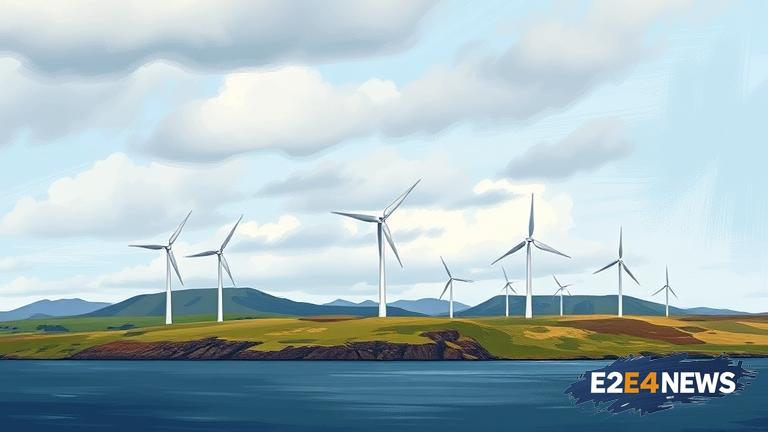The Shetland Islands, located off the northeastern coast of Scotland, are considering a moratorium on wind farm development due to possible legal concerns. The proposal has been met with a mix of reactions from local residents, environmental groups, and industry stakeholders. On one hand, proponents of the moratorium argue that it is necessary to address concerns over the potential environmental impact of large-scale wind farm development on the islands’ unique and sensitive ecosystems. They also point to the need for more thorough assessments and consultations with local communities before proceeding with any new projects. On the other hand, opponents of the moratorium argue that it could hinder the islands’ ability to meet their renewable energy targets and contribute to the UK’s efforts to reduce greenhouse gas emissions. They also suggest that the moratorium could have negative economic implications for the local community, which has come to rely on the wind farm industry as a source of employment and revenue. The possible legal implications of the moratorium are also a major concern, with some arguing that it could be challenged in court as an unfair restriction on the development of renewable energy. The Shetland Islands Council has stated that it is committed to finding a balance between the need for renewable energy and the need to protect the islands’ environment and natural resources. The council has also emphasized the importance of engaging with local communities and stakeholders in the decision-making process. However, the issue remains contentious, with some arguing that the council is not doing enough to address the concerns of local residents and environmental groups. The moratorium proposal has also sparked a wider debate about the role of wind farms in the UK’s energy mix and the need for more sustainable and environmentally-friendly forms of energy production. As the debate continues, it is clear that the Shetland Islands will play an important role in shaping the future of renewable energy in the UK. The islands’ unique geography and natural resources make them an ideal location for wind farm development, but they also pose significant challenges in terms of environmental protection and community engagement. In recent years, the Shetland Islands have seen a significant increase in wind farm development, with several large-scale projects currently in operation or under construction. However, the rapid expansion of the industry has also raised concerns about the potential impact on local wildlife and ecosystems. The Shetland Islands are home to a number of rare and endangered species, including the Shetland wren and the otter, and there are concerns that the construction of wind farms could disrupt their habitats and threaten their survival. The moratorium proposal has been welcomed by some environmental groups, who argue that it provides an opportunity to reassess the impact of wind farm development on the islands’ environment and to develop more sustainable and environmentally-friendly forms of energy production. However, others have criticized the proposal as a knee-jerk reaction that fails to take into account the complex and nuanced issues surrounding wind farm development. As the debate continues, it is clear that the Shetland Islands will remain at the forefront of the discussion about the role of wind farms in the UK’s energy mix. The islands’ unique combination of natural resources, environmental concerns, and community engagement challenges make them an ideal location for exploring the complexities of renewable energy development. In conclusion, the proposal for a moratorium on wind farm development in the Shetland Islands has sparked a heated debate about the role of wind farms in the UK’s energy mix and the need for more sustainable and environmentally-friendly forms of energy production. While the proposal has been welcomed by some as an opportunity to reassess the impact of wind farm development on the islands’ environment, others have criticized it as a knee-jerk reaction that fails to take into account the complex and nuanced issues surrounding wind farm development. As the debate continues, it is clear that the Shetland Islands will play an important role in shaping the future of renewable energy in the UK.
